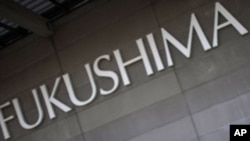The International Atomic Energy Agency, or IAEA, said Tuesday that last month's accident at Japan's Fukushima Daiichi nuclear power plant is very different from the Chernobyl power plant explosion in what is now Ukraine in 1986 - despite both disasters being classified at the highest level on the nuclear incident scale.
Speaking at a press conference in Vienna, the International Atomic Energy Agency's Deputy Director Denis Flory described the increased severity rating of Japan's nuclear accident as a communications tool. He said the Level 7 classification does not mean that Japanese authorities had downplayed the accident, but that they had not been able to measure the total amount of radiation released initially.
"Without evaluating that and on the basis of the measurements in the environment, measurement of food, etc., the Japanese government had already acted," he said. "And before that, just at the beginning of the accident, the Japanese government had evacuated zones 10 and 20 kilometers [from the plant] and now even more than that."
Although the Fukushima and Chernobyl nuclear power plant accidents are the worst in history, Flory said the two disasters are not comparable.
"The Fukushima accident and Chernobyl are very different," he said. "Chernobyl happened when the reactor had power, it was a huge explosion, vapor, power explosion, and then you had a huge graphite fire."
At Chernobyl, radiation spread over a wide area when a reactor exploded. So far at Fukushima, most of the radiation has been contained in large concrete structures, although Japanese officials say those chambers might be leaking.
The IAEA's Denis Flory said the amount radiation released at Chernobyl was far higher than at Fukushima. He cited Japanese data that show the Fukushima plant has released about one-tenth of the radioactive material that was released at Chernobyl. Although he described the situation at the Japanese plant as "very serious," Flory said that tests of food produced in eight prefectures around Fukushima have found little or no radioactive material.
IAEA: Fukushima, Chernobyl Accidents Not Comparable Despite Severity
- By Lisa Bryant
















